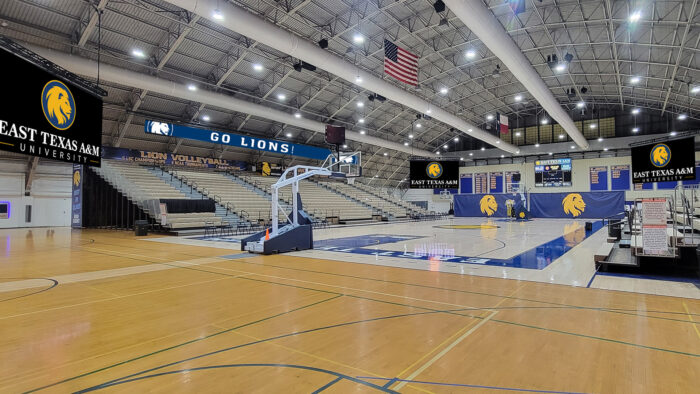Why Advancing from RN to BSN Matters More Than Ever – And How It’s Faster and Cheaper Than You Think

As the healthcare industry evolves and hospitals increasingly prefer bachelor's-prepared nurses, advancing from a registered nurse (RN) with an associate degree to an RN with a Bachelor of Science in Nursing (BSN) is more important than ever.
Whether it's for greater job opportunities, higher salary potential or an increased likelihood of securing leadership and managerial roles, more nursing students are choosing to take the BSN route to becoming a nurse.
Why Earning a BSN Matters More Than Ever
As stated previously, hospitals and other healthcare facilities increasingly prefer or even require BSN nurses as part of their staff. This is partly due to studies showing improved patient outcomes in facilities where greater emphasis on hiring BSN nurses is established. In fact, the American Nurses Credentialing Center requires 100% of a facility's nurse leaders and managers to have a bachelor's degree or higher in nursing to qualify for Magnet Recognition, an acknowledgement of nursing excellence in particular areas. As such, it's no surprise many facilities offer a higher pay rate for nurses with a BSN versus those with a diploma or Associate Degree in Nursing.
Some organizations, like the Veterans Health Administration, already require nurses under their employ to be BSN-educated. And some states are considering implementing a “BSN in 10” law, which requires nurses to earn their BSN within 10 years of becoming an RN. This law is already in effect in New York.
Furthermore, nurses looking to eventually become nurse practitioners must complete a Master of Science in Nursing (MSN), and most MSN programs require a BSN for admittance.
Overcoming Concerns About Returning to College
For these reasons and more, it is no surprise that associate-degree RNs are looking to continue their education and career development journeys by earning a BSN. But the thought of returning to college triggers trepidation for many. After all, doesn't college come with commuting to campus, sitting through lectures and staying up into the wee hours of the night studying for exams? And doesn't college cost a lot of money?
Well, not necessarily.
How East Texas A&M Makes It Quick and Affordable
At East Texas A&M University, an RN can earn their BSN in a matter of months while avoiding many of the drawbacks of the standard college experience. With the most inexpensive RN-to-BSN program in Texas, it's also an affordable option.
East Texas A&M offers a competency-based RN-to-BSN program, which recognizes the skills and knowledge a student has already obtained while on the job as an RN or student nurse. Competency based education (CBE) posits that learning is best measured by students demonstrating what they know and can do rather than by the number of hours spent in a classroom. CBE is student-driven and self-paced, guided by individualized feedback from an instructor and advisor.
RN-to-BSN Admissions Coordinator Anthony Ashcraft said, “Students can accelerate through the curriculum or decelerate as needed, depending on their work-life commitments.”
The RN-to-BSN program is 100% online, meaning no commuting to campus or working around a rigid class schedule. Students enroll in seven-week terms for the program, rather than the standard semester of around 16 weeks. The self-paced nature of the program allows the student to expedite through the curriculum as desired. This presents an opportunity for courses to be completed within a few weeks and provides a pathway to earlier graduation.
Two (or more) For the Price of One
Perhaps the best part of this competency-based method of earning a BSN is that students may enroll in one class or multiple classes per seven-week term, all for the same low price. That's right—a student can take multiple classes for the same price as one.
“The RN-to-BSN track at ETAMU's School of Nursing is the best deal in Texas!” said Dr. Jere Hammer, interim department head and director of nursing.
So, advancing from RN to BSN is not only immensely important, both for patient care and the nurse’s career, but at East Texas A&M, it can also be accomplished in a relatively short amount of time at a reasonable cost.
To meet the minimum admission requirements for the RN-to-BSN program at East Texas A&M, an individual must have an unencumbered RN license from Texas or another state or be currently enrolled in or have completed an RN program and awaiting licensure exam results.
For more information about the RN-to-BSN program, please contact Anthony Ashcraft or Dr. Jere Hammer.
More Campus and Community News
View All Campus and Community News
East Texas A&M Installs State-of-the-Art Video Boards in the Field House
East Texas A&M University enhanced the in-venue experience inside the Hunt Regional Healthcare Court in the Field House this spring by installing four videoboards and two ribbon boards.

KETR Celebrates 50 Years of Service to Northeast Texas
88.9 KETR is celebrating a major milestone this week: 50 years on the air. The National Public Radio (NPR) station went live on April 7, 1975, broadcasting from the Journalism Building at East Texas A&M University.

East Texas A&M: Leading the Charge in Competency-Based Education
East Texas A&M University is at the forefront of competency-based education (CBE), offering flexible, career-focused programs that empower busy adults to transform their careers.


